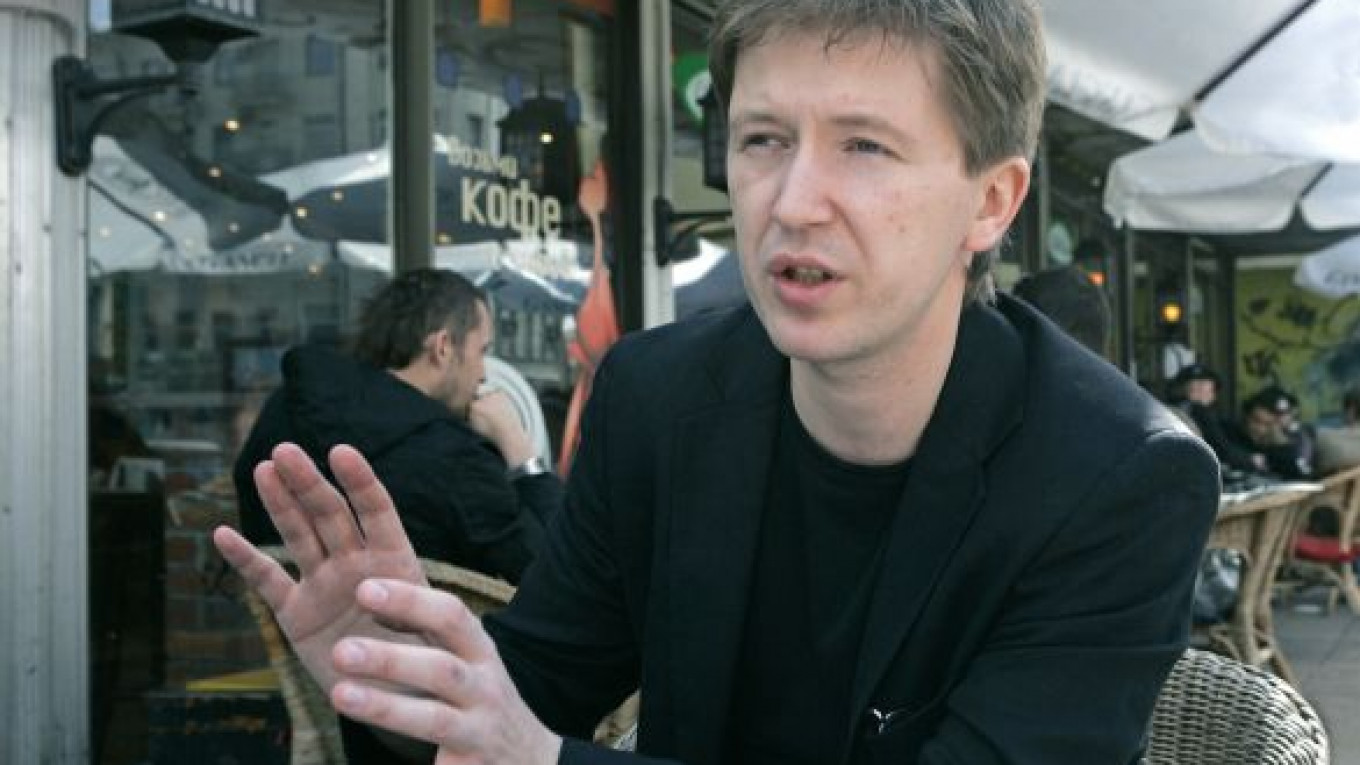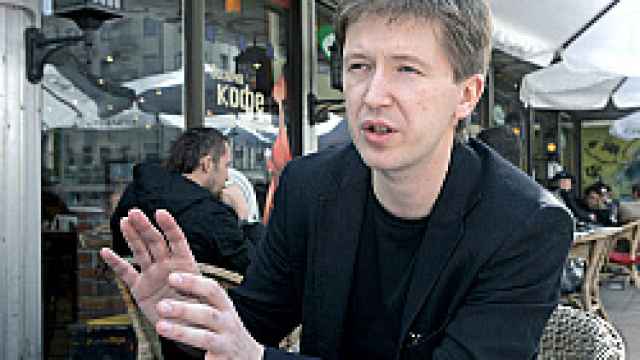LONDON — Russia's security services have changed a lot since the late Soviet days. They are much worse.
That's the view of Andrei Soldatov and Irina Borogan, two young Russian journalists who have just published a book on the FSB, the main successor to the powerful KGB.
"The KGB was a very powerful organization, but at the same time it was under the strict control of the Communist Party," Soldatov told Reuters in an interview Wednesday in London, where he and Borogan were promoting their book at a seminar.
"With the FSB, we have no party control and we have no parliamentary control. … We have got uncontrollable secret services."
The security services' lack of accountability and their increasingly brutal methods — justified by a bloody domestic war on Islamist militancy — make them more like the feared ***mukhabarat,*** or security police, of the Arab world than the old Soviet spy agencies, co-author Borogan added.
Their book, "The New Nobility," takes its title from former FSB director Nikolai Patrushev's phrase in a speech at the end of 1999 celebrating the return of spy power — led by former KGB agent and incoming President Vladimir Putin.
Picked by President Boris Yeltsin in 1999 as a supposedly malleable successor, Putin quickly showed who was boss. He filled key Kremlin and state corporation posts with ex-security service officers, creating a big new power base of individuals sharing close loyalty to their former employers.
Unchecked by any institution and answerable to nobody, the "new nobility" quickly showed their dangerous side.
Russia's most prominent rights activist, Lyudmila Alexeyeva, recalled in a recent interview how in the late Soviet era, the KGB was repressive but less dangerous. "Back then, there were prisons and psychiatric hospitals, but they didn't kill anyone," she said. "Murders just didn't happen. And now they do."
British prosecutors named former Federal Guard Service officer Andrei Lugovoi as a suspect in the radioactive poisoning of Putin critic Alexander Litvinenko, a former FSB agent, in London in 2006. Russian investigators also named an FSB officer as one of the suspects in the murder the same year of crusading journalist Anna Politkovskaya.
Today's FSB generals, the authors say, resemble the old tsarist aristocracy in more ways than one.
Their taste for an extravagant lifestyle financed by wealth obtained through their positions contrasts with the Soviet era, when the secret service chiefs had a temporary hold on perks and privileges that disappeared when they left their posts.
"Russia's new security services are more than simply servants of the state," the authors write. "They are landed property owners and powerful players."
The book — which has not been published in Russia or reported on by Russian media — recounts how 99 acres of Moscow's most expensive land, along the exclusive Rublyovskoye Shosse, was handed over to top FSB agents in 2003-04 for token sums under a legal scheme to recognize their years of service.
Some plots were then resold for tens of millions of dollars.
FSB agents and their overseas counterparts in the Foreign Intelligence Service, or SVR, are now used increasingly to defend Russian billionaires' business interests, Soldatov says.
"In 2007, Putin openly admitted when he appointed former Prime Minister Mikhail Fradkov as chief of foreign intelligence that the new task for foreign intelligence was to protect the interests of Russian companies abroad," he said.
Examples included a letter from Patrushev to the Federal Anti-Monopoly Service asking it to bar Norwegian telecoms firm Telenor from buying more shares in its VimpelCom because Telenor had "too many spies," Soldatov added.
"In this case, it looks like corporations used the FSB," he said.
Soldatov also said it appeared that the FSB had been used by Russian interests in local oil major TNK-BP to put pressure on BP to cede management control of the joint venture.
At the peak of the battle over TNK-BP in 2008, FSB agents raided the company's Moscow headquarters, questioned staff and confiscated computers and disks, almost paralyzing operations.
Despite the security services' wealth and power, the authors believe that real power in Russia still lies with the oligarchs.
The top security services men are "absolutely not leaders," Borogan says. "They have no vision of their own of the economic and political system in Russia."
Despite his pledges to modernize Russia, President Dmitry Medvedev is unlikely to reform spy services, the authors say.
"We think he is quite happy with the system created by Putin because it's very stable and he is not very interested" in changing it, Soldatov concluded.
A Message from The Moscow Times:
Dear readers,
We are facing unprecedented challenges. Russia's Prosecutor General's Office has designated The Moscow Times as an "undesirable" organization, criminalizing our work and putting our staff at risk of prosecution. This follows our earlier unjust labeling as a "foreign agent."
These actions are direct attempts to silence independent journalism in Russia. The authorities claim our work "discredits the decisions of the Russian leadership." We see things differently: we strive to provide accurate, unbiased reporting on Russia.
We, the journalists of The Moscow Times, refuse to be silenced. But to continue our work, we need your help.
Your support, no matter how small, makes a world of difference. If you can, please support us monthly starting from just $2. It's quick to set up, and every contribution makes a significant impact.
By supporting The Moscow Times, you're defending open, independent journalism in the face of repression. Thank you for standing with us.
Remind me later.






